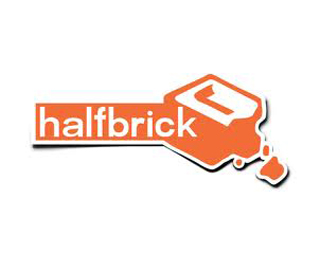人物专访:Halfbrick公司董事长谈手机游戏市场营销策略
世界上运营不利的企业往往是到最后一刻才舍得下功夫促销推广,然后困惑为何自己的产品消失得无影无踪。这就是澳大利亚游戏开发商、《水果忍者》(Fruit Ninja)和《怪物狂奔》(Monster Dash)的开发者Halfbrick公司对市场营销的看法。
日前,该公司董事长夏尼尔·迪奥(Shaniel Deo)在Smart Company的采访中表示,Halfbrick公司过去六个月可以从苹果App Store创收200万美元,很大程度上得益于有效的市场营销手段。
夏尼尔·迪奥认为,市场营销是游戏大获成功的关键,在提及《水果忍者》的初次发布时,他表示“我们必须通过Twitter和Facebook这类平台进行游戏口碑营销,另外还要创造条件让玩家把自己的游戏分值、积分排行榜等晒到网上,怂恿其他用户参与挑战……Twitter等社交网站是游戏传播的最大推手。”
通过早期游戏玩家的口碑营销,Halfbrick成功招揽了许多用户,除此之外,该公司擅与新闻媒体打交道也是不容忽视的优势。
他表示,“与新闻媒体建立关系确实需要费些时间,但你不能仅仅完成游戏开发任务,就坐等媒体自动上门替你做宣传。我们建立了一套与新闻媒体接触的机制,扩大到专门针对iOS的媒体单位,然后研究了那些iOS游戏取得成功的原因。”
Halfbrick的策略是在游戏推出时及时发布所谓的“绝密”新闻,同时要保证游戏定期更新,让用户对该游戏爱不释手,并通过口碑营销不断为其宣传。
《水果忍者》和《怪物狂奔》两者都已顺利跻身澳大利亚游戏排行的前10名,目前后者的销量已经逼近40万大关。
迪奥认为,如果没有这些前瞻性的推广计划,Halfbrick游戏未必能收获现在的结果。他表示,“一系列推广过程表明市场营销的确很重要,很多人在游戏开发结束前甚至没有考虑推出自己的市场营销计划,我们确信自己走的路子是对的。”(本文为游戏邦/gamerboom.com编译)
Halfbrick’s Shaniel Deo on how marketing savvy pulled in $2 million on App Store
It’s not just the games industry that writes off marketing.
Bad businesses the world over are willing to leave any form of promotion to the last minute and then wonder why their products disappear without a trace.
At least that’s the view of Fruit Ninja and Monster Dash developer Halfbrick.
Indeed, chief executive Shaniel Deo attributes much of the $2 million the studio has made from the App Store in the last six months to its ability to master the art of marketing.
Forward planning
“Marketing was a huge part of it all, and it played a huge roll,” says Deo in an interview with Smart Company.
“We needed to get the viral word out through Twitter and Facebook,” he says of Fruit Ninja’s debut, “and we also incorporated things like allowing people to post about their scores, having leaderboards and so on encouraging competition.
“Twitter and so on have been the biggest methods through which the game has spread.”
As a result, Halfbrick was able to engage with early adopters from the word go, and its approach to the press was just as crucial.
“It takes time to build relationships with the press, you can’t just finish a product and then get them to feature you.
“We started a process of getting contacts in the press, expanding that to iOS press generally as well, and then we studied what those games were doing right,” he adds.
Closing the deal
Halfbrick’s strategy revolved around sending out embargoed press releases at launch (“all of a sudden we had this burst of information,” claims Deo) and keeping Fruit Ninja regularly updated, so people would keep the game on their handsets and spread the title through word of mouth as a result.
Both Fruit Ninja and Monster Dash made it into the top 10 in the studio’s home territory of Australia as a result, with the latter currently approaching sales of 400,000.
Without such advanced planning, however, Deo believes the situation could have been very different.
“You’re always surprised with the App Store. It’s a roll of the dice, and we knew we had the launch right,” he concludes.
“I think the whole process has shown how crucial marketing is. A lot of people don’t even think about marketing themselves until their product is finished, but we made sure we had everything in place to go.”(source:pocketgamer)








































 闽公网安备35020302001549号
闽公网安备35020302001549号